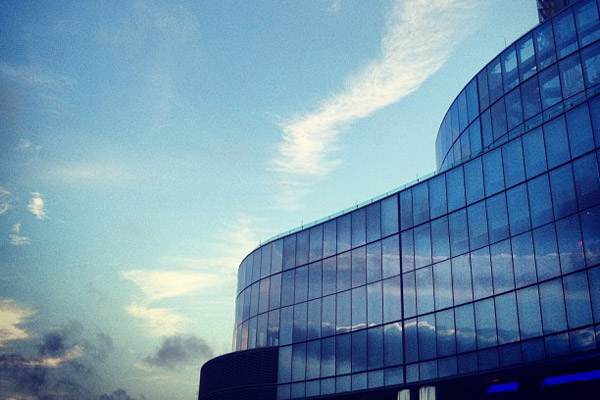
Mike Riela/CC by 2.0
New Jersey's bankrupt Revel Casino
The state's gambling expansion continues to roll —like an ocean, specifically, with waves of support building up, crashing against the governor and/or the state's gaming regulator, and swelling again. It's a tempting proposition: harvesting the gamblers who currently cross state lines into Indiana with a business whose product is taking money from people (which, I'll grant, can also be fun).
There are obvious downsides—the idea that a new Chicago casino would siphon off business from other local casinos (not that that's Chicago's problem), and the evidence that casinos do, as you might expect, increase certain social ills. But that doesn't obviate it; we regularly balance things that provide pleasure and problems depending on how much of the latter they cause, like booze versus meth.
Recently Atlantic City, which has lots of experience with building casinos, decided to build yet another one—a sophisticated, conceptually new casino called Revel to appeal to a different sort of audience and, thus, not cannibalize from its other 11 establishments. It's looking like a bad bet, and the lessons are instructive should Chicago, a proud architectural city, venture forth with one.
This is Revel. Sounds nice, right?
They want people to visit their 14 restaurants and "curated collection of Iron Chefs, Michelin chefs and James Beard Award winners." Instead of gaming credits or slot dollars, they’re offering a $30 "tasting credit" toward foodie-friendly eats as part of their preview package. Gone are the bland buffets, replaced by trendy tapas, “food truck" style tacos and churros (with spicy Valrhona chocolate dipping sauce to help ease some of those losses at the blackjack table), Belgian beers, and a "1920s-era zinc cocktail bar."
It opened in April last year as something of a public-private partnership, with the state investing $260 million dollars, about 10 percent of its cost, in exchange for a 20 percent cut. It filed for bankruptcy in March.
What happened? One theory is that gamblers didn't care for Revel's au courant atmosphere and preferred the smoky, windowless mazes they were used to:
But it lacks two key features of most casinos: a gambling floor in which smoking is allowed, and a cheap buffet option for dining. The designers of Revel also broke with typical casino design principles by showcasing views of the ocean, as well as using natural light to illuminate the gambling floors. A typical casino is a hot bed of artificial lighting designed to never change allowing gamblers to forget about time and the natural progression of the day, leading to marathon sessions of betting. These parts of the design, while somewhat humanizing, have proved unsuccessful in the only part of the project that matters at this point: generating revenue.
Part of the bankruptcy plan includes a smoking section and cheaper restaurants. Casino smoking is a difficult issue—the Illinois House voted to exempt casinos a couple years ago, under the belief that the 2007 smoking ban caused Illinois's casino revenues to founder. But that's also when the economy collapsed, and it collapsed harder on Illinois than its neighbors; teasing out cause and effect is difficult. More interesting to me is whether Revel's innovative design—open spaces and ocean vistas—backfired by reminding patrons that there's life outside the slot machines.


